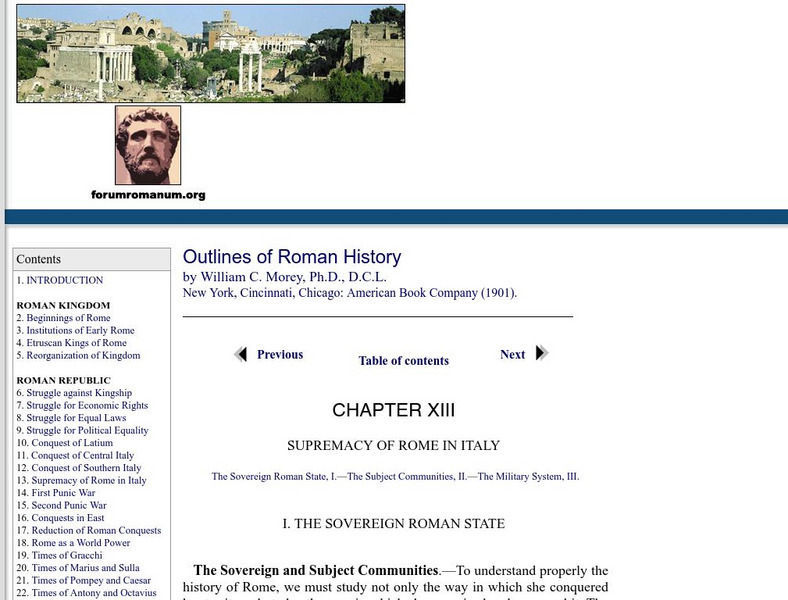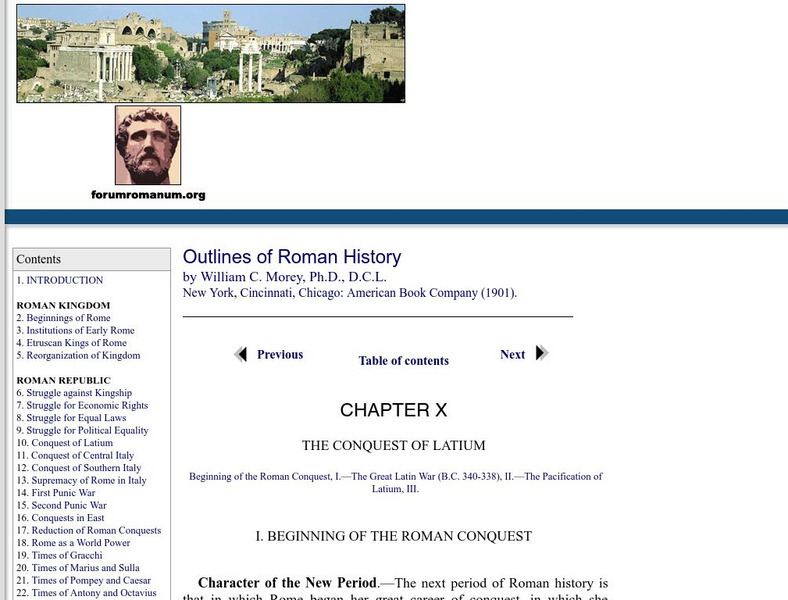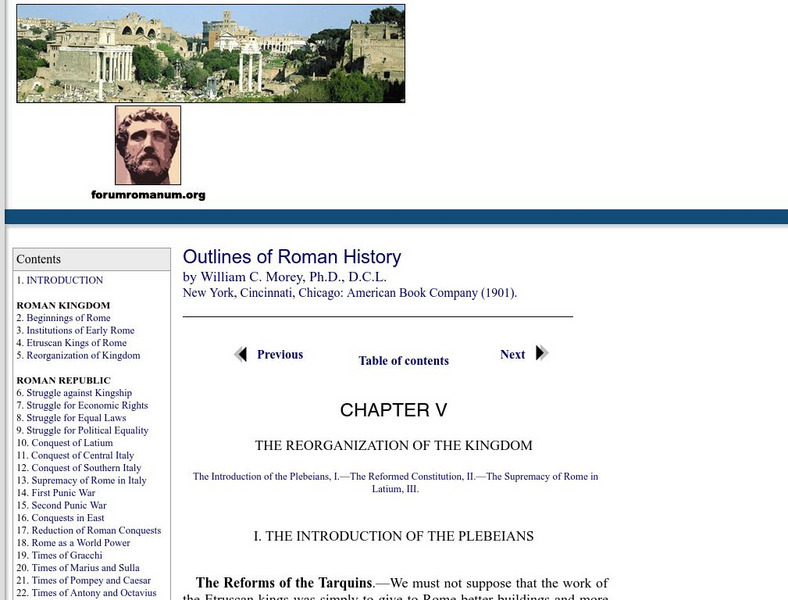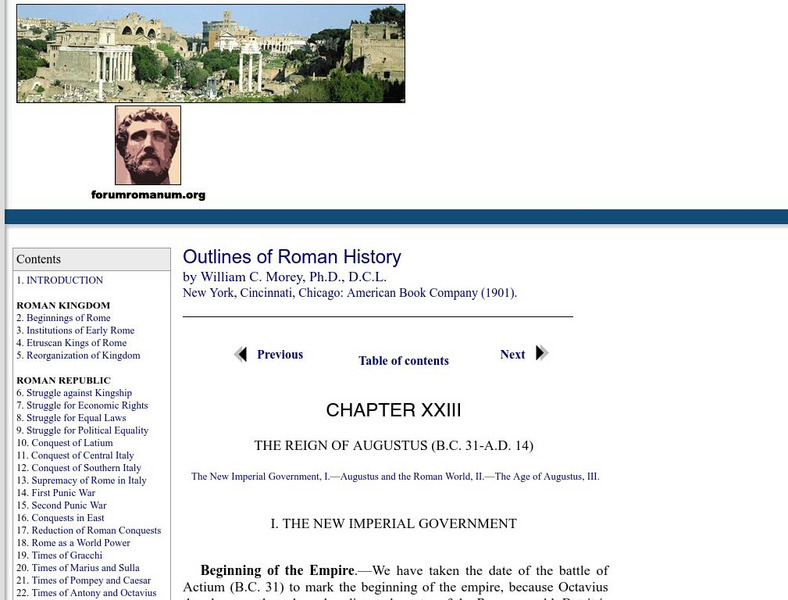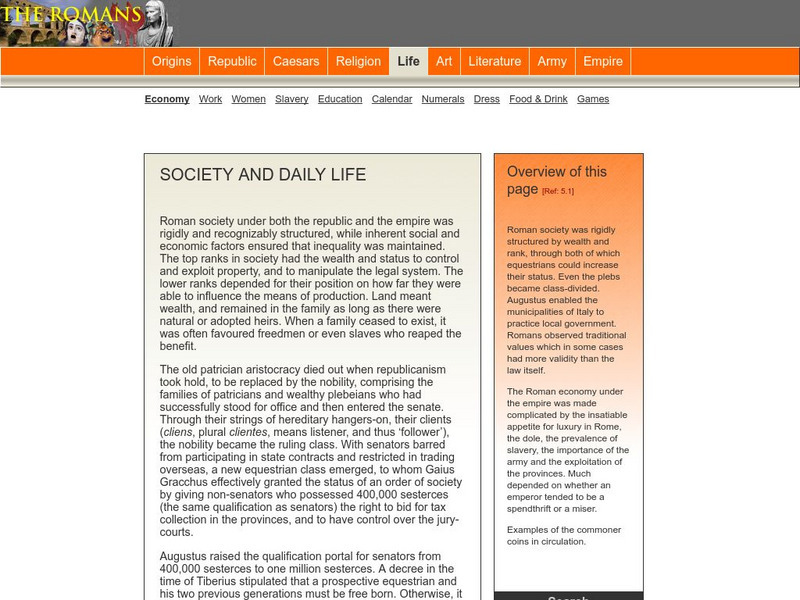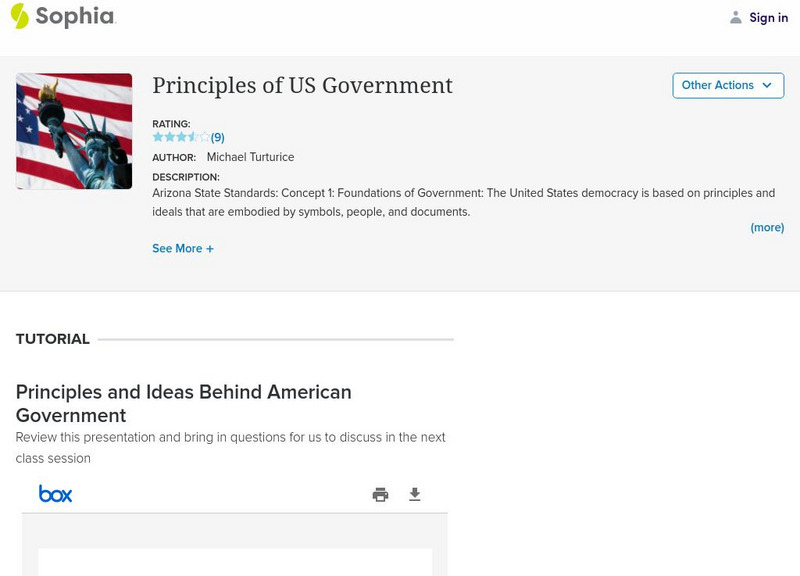Forum Romanum
Outlines of Roman History: Times of Marius and Sulla:dictatorship of Sulla
In this section of a chapter in William Morey's 1901 textbook, you'll discover the changes Sulla made in the government of Rome.
Forum Romanum
Outlines of Roman History: The Social War and the Rise of Sulla
Read this passage from William Morey's 1901 textbook to learn about the social war and Sulla's part in it.
Forum Romanum
Outlines of Roman History:reduction of Macedonia and Greece
As Rome expands her boundaries, she has to figure out how to treat the conquered lands. This site shows Rome trying different options and finally settling on the idea of provinces.
Forum Romanum
Outlines of Roman History: Pacification of the Provinces
Rome cannot rest after conquering lands. With often brutal methods, she subdues and consolidates her conquests, and perfects the province system. A slave revolt in Sicily, though, is an indication of problems to come.
Steven Kreis, PhD
The History Guide:republican Rome Struggle of the Orders
This site from The History Guide provides a comprehensive discussion on the struggle of the orders, the conflict between the plebeians and patricians of the early Roman Republic.
Forum Romanum
Outlines of Roman History: Table of Contents
The complete text of a 1901 textbook on Roman history by William C. Morey. However, the work is still useful today as if covers all the basic information about Rome from its earliest beginnings through the Republic and later the Empire.
Vroma Project
V Roma Project: Roman Cursus Honorum: Political Offices in the Roman Republic
The cursus honorum - the various political offices, ranks, and duties of the Roman Republic - are discussed. This page was created by Barbara F. McManus of the College of New Rochelle.
Vroma Project
V Roma Project: Notes on Roman Politics
An overview of several aspects of Roman politics, including terms and definitions of social classes. This page was created by Barbara F. McManus of The College of New Rochelle.
Other
Classzone: The Roman Empire [Pdf]
This e-textbook outlines the creation of the Roman Empire, and how it transformed Roman government, society, economy, and culture.
Forum Romanum
Outlines of Roman History: The Supremacy of Rome in Italy
One of Rome's strengths was the way it governed the peoples it conquered. Find out the difference between the Romans, the Latins, and the Italians in terms of rights of citizenship.
Forum Romanum
Outlines of Roman History: Conquest of Latium
Rome strengthens her position on the Italian peninsula, defeating her neighbors, and establishing a method of incorporating and governing colonies which she will use in her future expansion.
Vroma Project
V Roma Project: Augustus and Tiberius: Historical Background
This resource presents detailed information, formatted in a timeline, about Augustus and his successor, Tiberius. It features coin evidence along with genealogy charts. Click the link for the diagram and slide show that describe the...
Forum Romanum
Outlines of Roman History: Grievances of the Plebs
William Morey explains the tension between the Roman aristocracy, the patricians, and the plebeians with the establishment of the Republic. The First Secession of the plebeians brings some relief.
Forum Romanum
Outlines of Roman History: Reorganization of the Kingdom
This chapter in William Morey's 1901 textbook discusses the roforms made by the Etruscan kings and the introduction of the tension between Roman patricians and plebeians.
Forum Romanum
Outlines of Roman History: Augustus and the Roman World
William Morey, in his 1901 textbook, explains Augustus' administration of the three parts of the Roman Empire, Rome, Italy, and the provinces.
PBS
Pbs: The Roman Empire of the 1st Century: Religion and Politics in Daily Life
In this activity, learners will examine various aspects of religion in ancient Rome including the role of mythology, polytheism versus. monotheism, the treatment of Jews and Christians, and the spread of Christianity. To guide their...
Khan Academy
Khan Academy: Damnatio Memoriae Roman Sanctions Against Memory
Damnatio memoriae is a term we use to describe a Roman phenomenon in which the government condemned the memory of a person who was seen as a tyrant, traitor, or another sort of enemy to the state. The images of such condemned figures...
A&E Television
History.com: How Far Did Ancient Rome Spread?
Legend has it that Romulus and Remus -- twin brothers who were also demi-gods -- founded Rome on the River Tiber in 753 B.C. Over the next eight and a half centuries, it grew from a small town of pig farmers into a vast empire that...
Constitutional Rights Foundation
Constitutional Rights Foundation: When Roman Law Ruled the Western World
A history of Roman law, culture and the development of Western European law codes. Includes questions for writing and discussion, small group activity and links to further reading.
Other
The Romans: Society and Daily Life
Roman society was rigidly structured by wealth and rank, through both of which equestrians could increase their status. Even the plebs became class-divided. Augustus enabled the municipalities of Italy to practice local government....
Sophia Learning
Sophia: Principles of u.s. Government
Tutorial presents an introduction to the principles of the United States democratic government highlighting the differences and similarities between Roman and U.S. governments.
Able Media
Ctc: I, Caesar a Study of the Imperial Romans
This lesson plan provides semester-long activities in which students research and write about selected emperors who ruled Rome during different parts of its history.
Discovery Education
Discovery Education: Rome's Rise to Power: The Republic
A detailed lesson plan designed to teach students about the republican form of government established by the Romans in their early history and also how it relates to American government today.
Forum Romanum
Outlines of Roman History: Equalization of the Orders
This article shows how, through debt, agrarian, and legislative reform, the patricians and plebeians finally form a united citizenship.
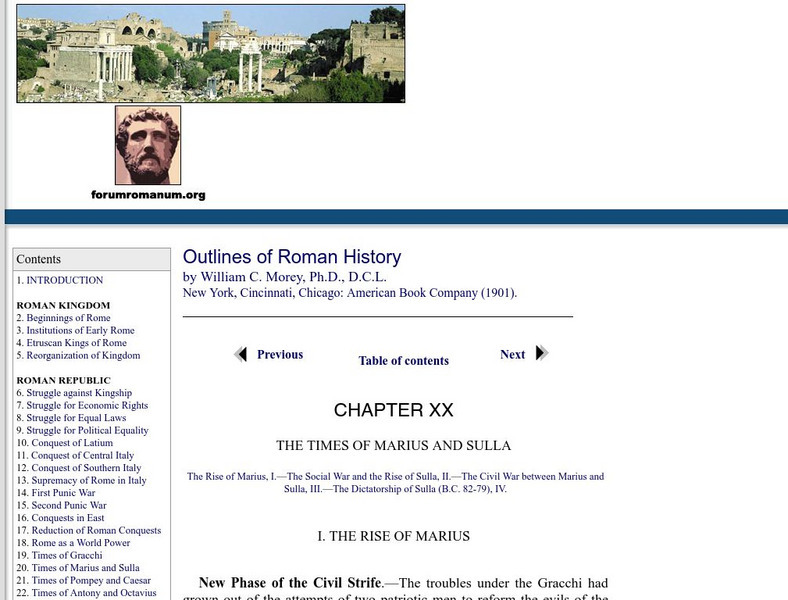
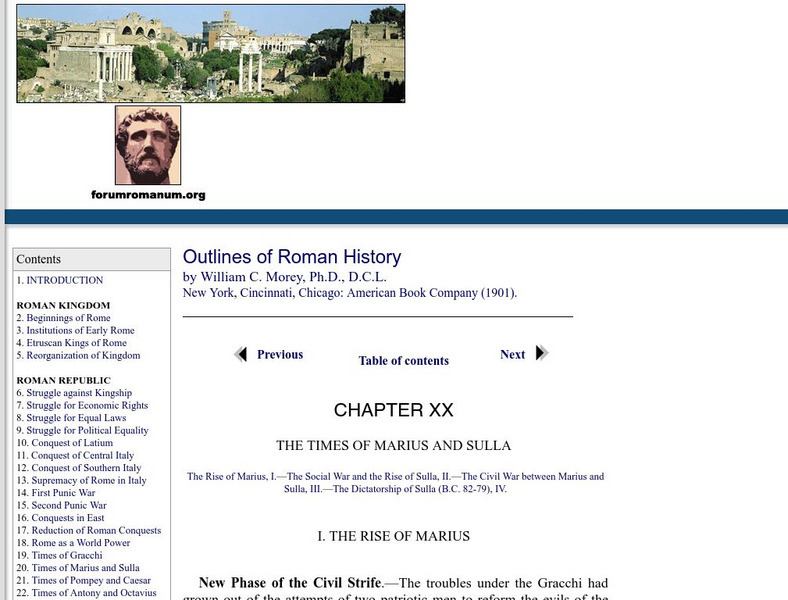
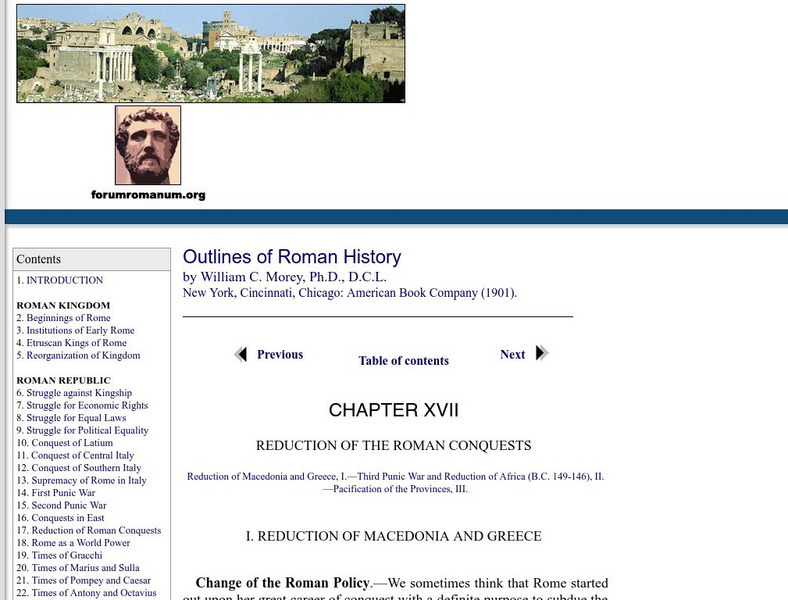




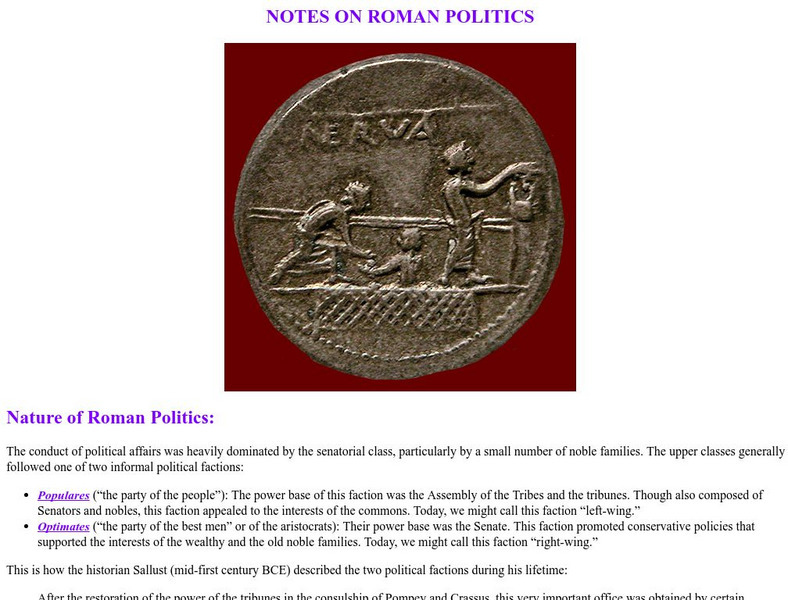
![Classzone: The Roman Empire [Pdf] eBook Classzone: The Roman Empire [Pdf] eBook](https://static.lp.lexp.cloud/images/attachment_defaults/resource/large/FPO-knovation.png)
